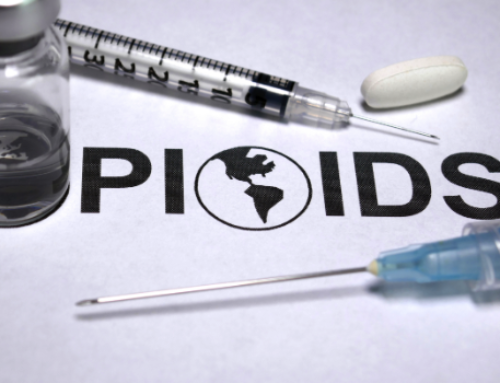Is Alcoholism Hereditary?
Alcohol is commonplace in our society. Many people have a drink to unwind after a long day or to celebrate a special occasion. However, some people have a more complicated relationship—and more detrimental—relationship with alcohol.
Alcoholism, also called alcohol use disorder, is a disease that impacts 1 out of every 12 Americans. Science continues to explore the causes of alcohol dependence and the best treatments for it.
If you or a loved one is impacted by alcoholism, you may be wondering, “is alcoholism hereditary or learned?”. Below, you’ll find out exactly what role genetics plays in this disease.
What is Alcoholism?
Alcoholism is a chronic disease that impacts a person’s ability to moderate their alcohol consumption.
Over time, people suffering from alcohol addiction will experience physical and emotional dependence on alcohol, making it very difficult for them to stop drinking. Going without alcohol will induce distressing withdrawal symptoms, like irritability, shakiness, and anxiety.
Due to this dependence, individuals who suffer from an alcohol addiction may develop:
- Health issues, like cirrhosis, organ damage, diabetes, kidney disease, or cancer
- Relational problems with loved ones
- Professional issues due to poor performance
What Are the Signs of Alcoholism?
A drinking problem can develop gradually. You can spot an alcohol disorder in someone by watching out for these signs:
- The inability to control their alcohol consumption
- Craving alcohol on a frequent basis
- Binge drinking large quantities of alcohol at a time
- Continuing to drink, despite negative relational, professional, legal, and health-related repercussions
Over time, alcohol abuse can take a significant toll on a person’s life, as well as their loved ones.
What Causes Alcoholism?
Alcoholism develops for many different reasons. It has a combination of biological, environmental, psychological, and social causes.
Some risk factors for developing alcoholism include:
- Growing up in a family where excessive drinking was normalized
- Starting to drink at a young age
- Having a family history of alcoholism
- Experiencing abuse, especially in childhood
- Going through a recent trauma, like the loss of a loved one
- Struggling with feelings of shame, loneliness, or anxiety
Is Alcoholism Genetic or Hereditary?
Alcohol has a strong genetic link. It has been linked to over 930 genes. These genes impact:
- How well you metabolize alcohol
- How high your baseline alcohol tolerance is
- How strongly your body’s reward system responds to alcohol
- How much GABA—the neurotransmitter that helps you feel relaxed—your body produces
- Whether or not you have a predisposition to certain mental health issues, like depression, anxiety, ADHD, schizophrenia, or bipolar disorder
If someone’s genetic makeup shows a proclivity towards these behaviors and bodily functions, they may experience a heightened response to alcohol. Drinking will trigger their brain’s reward and motivation centers more strongly than it would for the average person. As a result, they will want to drink more often and in greater quantities.
Due to this genetic influence, children of alcoholics are four times more likely to develop an alcohol dependence compared to the average person. Research estimates that the genetic factor contributes to your odds of developing alcoholism by 40% to 60%. Thus, alcoholism is partially hereditary, though other factors also play a role.
Alcoholism is Not Solely Hereditary
Answering the question “Is alcoholism hereditary?” isn’t as simple as a yes or a no. While alcoholism has a strong genetic component, other factors like environment, mental health, and more can impact someone’s chances of becoming an alcoholic.
Having a family history of alcoholism does not mean you are doomed to suffer from it too. It just increases the possibility.
If you believe you have a genetic predisposition to alcoholism, you may want to be cautious of your drinking habits or avoid drinking alcohol altogether.
Alcoholism and Genetic Predisposition: Recovery is Possible
Alcoholism is partially hereditary, but it doesn’t have to be your fate. If you or a loved one is suffering from this disease, there’s hope.
By going to an alcohol addiction treatment center, people suffering from alcohol dependency can get the comprehensive support they need, including:
- Withdrawal management – The alcohol detox process comes with some challenging side effects. Fortunately, you don’t have to go through them alone. With the supervision of medical professionals, the withdrawal process can be much safer and more comfortable.
- In-patient treatment – A rehabilitation program also offers many therapeutic services for those suffering from addiction. These programs can help patients improve their emotional health so they can thrive during treatment and beyond.
- Recovery support services – Staying sober is a life-long commitment. An addiction treatment program can match you with the right recovery support groups, case managers, and job readiness programs to make sobriety sustainable. These services help you get your life back on track and stay committed to recovery.
VOASW: San Diego Alcoholism Treatment
By committing to a treatment program, patients can heal from alcohol disorder once and for all. For example, San Diego’s Renaissance Treatment Center has helped over 1,200 people overcome addiction and embrace a sober lifestyle.
To learn more about this treatment center, reach out to a VOASW member today.
Sources:
WebMD. Understanding Alcohol Use Disorder — the Basics.
https://www.webmd.com/mental-health/addiction/understanding-alcohol-abuse-basics#1
Purdue University. Drink-seeking rats provide sobering look into genetics of alcoholism.
AACAP. Children of Alcoholics.
https://www.aacap.org/App_Themes/AACAP/docs/facts_for_families/17_children_of_alcoholics.pdf
Psych Central. Alcohol Consumption and Genetics.
https://psychcentral.com/lib/alcohol-consumption-and-genetics/


